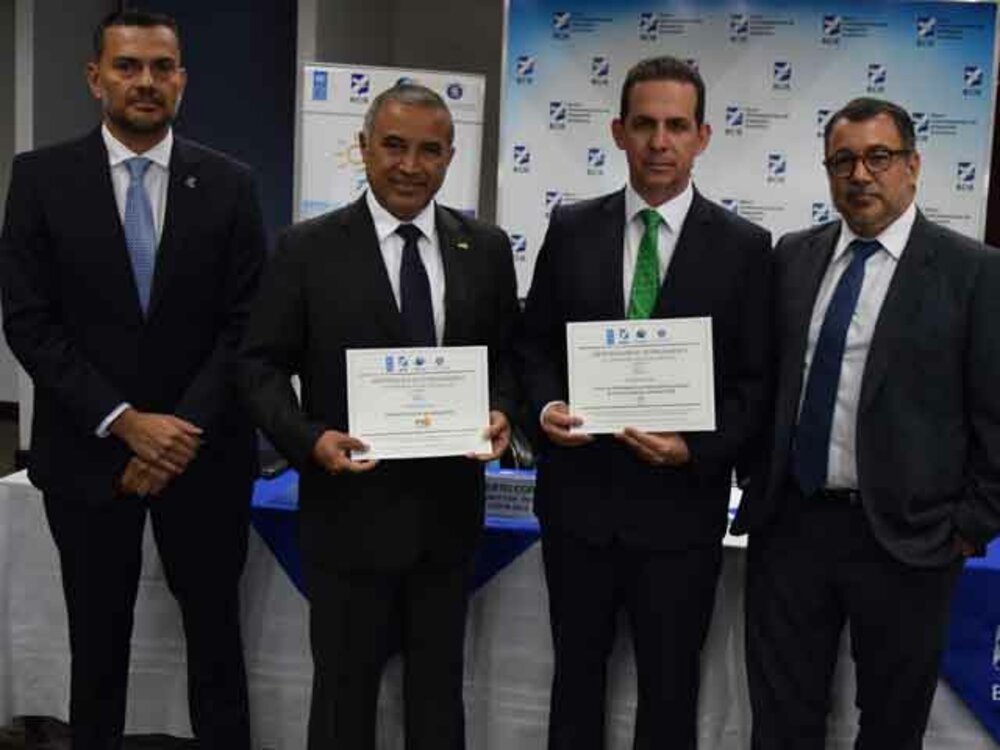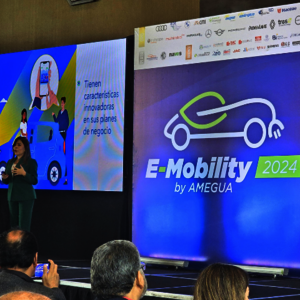CABEI, INA and UCR join to implement innovative renewable energy projects

CABEI will finance the development of two projects; one at the Electrochemistry and Chemical Energy Research Center (CELEQ-UCR) and the other at the National Learning Institute (INA).
San José, February 16, 2017. -The Central American Bank for Economic Integration (CABEI), through its ARECA Project, will provide technical assistance for two significant initiatives; the first will enable the installation of solar energy storage systems at Universidad Costa Rica (UCR) and the second involves the implementation of a Renewable Energy Generation Laboratory at the Costa Rican National Learning Institute (INA).
The US$80 thousand technical assistance between CABEI and UCR will support the Electrochemistry and Chemical Energy Research Center (CELEQ-UCR) with the procurement of photovoltaic equipment required for the installation of solar energy storage systems. A pilot test will be carried out to determine optimal conditions for efficient energy storage in order to replace traditional options, such as lead batteries.
As a result of the above, a database with the results obtained will be created and a manual will be prepared for the university community and the general public. In addition, the installation of the photovoltaic equipment will supply the university with clean energy and produce savings that could be used by the Institution in other activities.
The US$80 thousand technical assistance granted by CABEI to INA will be used to equip a Renewable Energy Laboratory, which will benefit the INA electrical system and its installations.
The Laboratory will be used to train young people at a basic technical level and to develop technical updating and specialization courses for clients or investors who are interested in starting a renewable energy project or who want to achieve greater efficiency in their productive processes.
CABEI Director for Costa Rica, Dr. Alberto Cortés Ramos, stated that, "Both non-reimbursable contributions from CABEI demonstrate the Institution’s progress and commitment to regional innovation and sustainability. It is noteworthy that these projects be replicated throughout the Central American region in order to strengthen energy supply, contribute to human capital research and training, promote job creation, reduce poverty and foster social inclusion."
For his part, UCR Vice President of Research, Dr. Fernando García Santamaría, stated that, "UCR has always been characterized by being at the forefront of new and useful knowledge for society. This project focuses on the three substantive areas of our institutional work: With regard to the area of teaching, didactic material for the courses and training activities will be prepared for students and users of photovoltaic systems. With respect to the area of research, the data obtained will allow the university to evaluate the costs, efficiency and feasibility of implementing these technologies outside of the Institution. Finally, through the area of social action, UCR will disseminate the knowledge obtained in order for the technologies to be used by Costa Ricans to generate clean energy and contribute to the development of their communities.”
For INA Executive President, Mr. Minor Rodríguez Rodríguez, "Clean energy issues are a priority for the institution because for many years it has been working on environmental, carbon neutral and renewable energy policies among different institutions in order to comply with the responsibility of helping communities deal with changes. The project will strengthen these teams, and therefore the learning of people and companies."
CABEI, through its ARECA Project, has granted 22 technical assistance initiatives for renewable energy issues in Central America. The implementation of these projects reinforces energy innovation in its member countries, in this case Costa Rica.
ARECA is a tripartite initiative of the Global Environment Facility, the United Nations Development Program, the Finish Foreign Affairs Ministry of Finland and CABEI, as executing organization. It supports the financing of small renewable energy projects that produce less than 10 MW.







